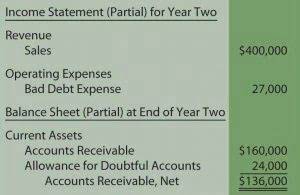
Financial leverage refers to a company’s use of borrowed capital in order to acquire assets and increase its return on investments. Through balance sheet analysis, managerial accountants can provide management with the tools they need to study the company’s debt and equity mix in order to put leverage to its most optimal use. Inventory turnover is a calculation of how many times a company has sold and replaced inventory in a given time period.
Can you earn an accounting degree online?
Still, they need certifications, such as getting a CPA (certified public accountant) license to expand job opportunities. And those wanting to pursue managerial accounting should get a CMA (certified management accountant) credential. The key difference between managerial accounting and financial accounting relates to the intended users of the information. Managerial accounting information is aimed at helping managers within the organization make well-informed business decisions, while financial accounting is aimed at providing financial information to parties outside the organization. The primary objectives of both management and financial accountings include recording business transactions, recording revenues and expenses as they occur, as well as preparing Financial Statements. However, the primary objective of financial accounting is to provide information for use by external users while Management Accounting focuses on providing information for making better business decisions within the organization.
Future vs. Past
Financial accounting uses the US GAAP issued by the Financial Accounting Standards Board (FASB). Publicly listed companies are required to follow the US GAAP to improve the comparability, understandability, verifiability, and timeliness of financial statements. In financial accounting, rules are set by specific standards like IFRS (International Financial Reporting Standards) or GAAP (Generally Accepted Accounting Principles). In contrast, management accounting is not legally required to follow specific criteria, as the reports are only used within the organization. The reporting foci of financial accounting include reporting the company’s financial conditions and the end results on a particular date.
Differences Between Managerial Accounting vs. Financial Accounting

Managerial accounting uses some of the same financial information as financial accounting, but much of that information will be broken down to a more detailed level. For example, in financial reporting, net sales are needed for the income statement. In managerial accounting, the quantity and dollar value of the sales of each product are likely more useful. In addition, managerial accounting uses a significant amount of nonmonetary accounting information, such as quantity of material, number of employees, number of hours worked, and so forth, which does not relate to money or currency.
Reports produced by managerial accounting (e.g., operational reports) are only distributed internally to individuals within your business. In contrast to managerial accounting, there is a right (and regulated) way to perform financial accounting. This is to prevent stakeholders from being misled by inconsistent formatting or calculations. This is what financial accounting does—it helps stakeholders obtain an accurate, fully transparent view of a company’s recent financial health. Investopedia is considered to be the largest Internet financial education resource in the world. There are many short, helpful videos that explain various concepts of managerial accounting.

Unlike financial reports, management reporting centers on components of the business. By dividing the business into smaller sections, a company is able to get into the details and analyze the smallest segments of the business. Now that you have a basic understanding of managerial accounting, consider how it is similar to and different from financial accounting. After completing a financial accounting class, many students do not look forward to another semester of debits, credits, and journal entries. Also known as management accounting or cost accounting, managerial accounting provides information to managers and other users within the company in order to make more informed decisions. The overriding roles of managers (planning, controlling, and evaluating) lead to the distinction between financial and managerial accounting.
- Managerial accountants help determine where bottlenecks occur and calculate the impact of these constraints on revenue, profit, and cash flow.
- Financial accounting exists to inform stakeholders of a company’s financial health.
- Financial accounting is focused on creating financial statements to be shared internal and external stakeholders and the public.
- And those wanting to pursue managerial accounting should get a CMA (certified management accountant) credential.
- Now that you have a basic understanding of managerial accounting, consider how it is similar to and different from financial accounting.
- There are many online colleges that offer accounting degree programs, so it’s important to do your research to find the best fit for you.

The first similarity between financial and management accounting is that both are a part of the accounting information system. This means that the accounting information which is used in financial accounting can also be used in management accounting to disclose reports and analyses. Moreover, both of them deal with cash flows, financial statements, assets, expenses, liabilities, and revenues. One of the company’s top-selling ice creams is their seasonal variety; a new flavor is introduced every three months and sold for only a six-month period. The cost of these specialty ice creams is different from the cost of the standard flavors for reasons such as the unique or expensive ingredients and the specialty packaging.
Reporting frequency
Managerial accounting provides the essential data with which organizations are actually run. Financial accounting provides the scorecard by which a company’s past performance is judged. No external, independent auditors are needed, and it is not necessary to wait until the year-end. Managers should understand that in order to obtain information quickly, they must accept less precision in the financial accounting reporting. While there are several reports that are created on a regular basis (e.g., budgets and variance reports), many management reports are produced on an as-needed basis. While many businesses use a combination of managerial and financial accounting, only the financial statements produced using financial accounting processes are required to be audited by an independent CPA firm.
